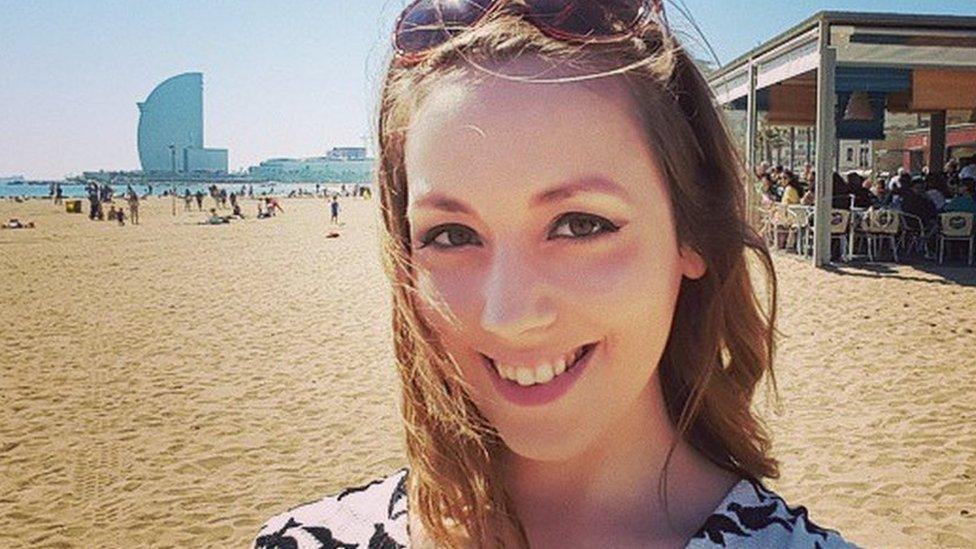100 Women 2015: Is make-up a feminist issue?
- Published
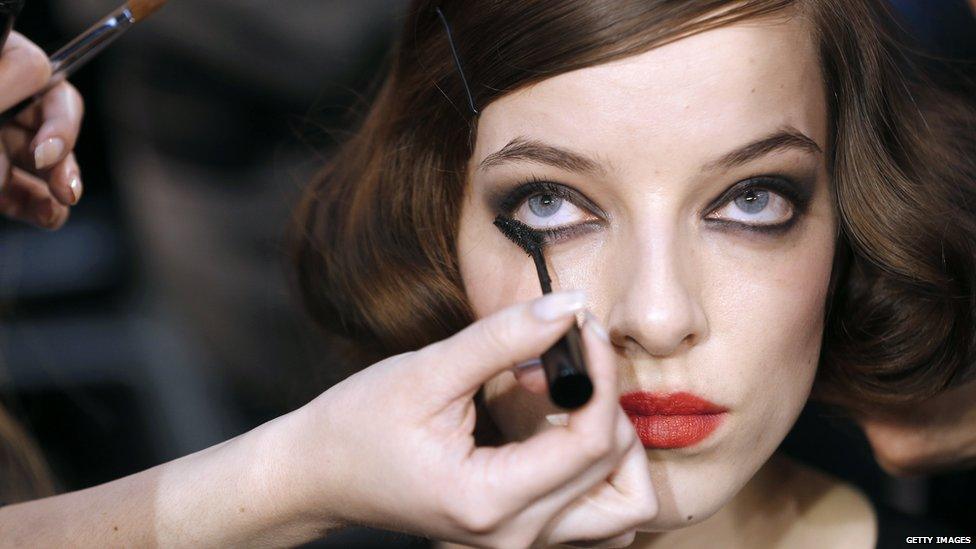
The beauty industry perpetuates an impossible ideal of perfection - is this the fault of makeup or society?
I see make-up as a natural extension of self-expression, but not everyone agrees wearing it is so straightforward.
While I regularly go bare faced, I do feel more put-together and ready to face the world when I wear make-up. Wearing it, for me, is no different from ironing a shirt or brushing my hair.
But a key facet of second wave feminism between the 1960s and 1980s was the suggestion women should discard any adornment, believing it served only to subjugate them in the eyes of men.

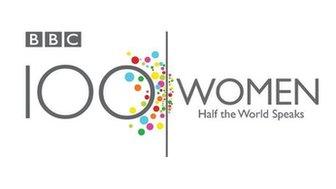
This year's season features two weeks of inspirational stories about the BBC's 100 Women and others who are defying stereotypes around the world.
Like us on Facebook, external and follow us on Instagram, external using the hashtag #100Women, external. Listen to the programmes here.
And in 1991, writing in The Beauty Myth, author Naomi Wolf argued just at the moment women freed themselves from the shackles of domesticity and gained political and social advancements, the pressures to conform to unattainable standards of beauty increased through the subliminal messages of advertising.

The BBC's 100 Women team spent the evening with a group of women having a makeover. Here are their thoughts:
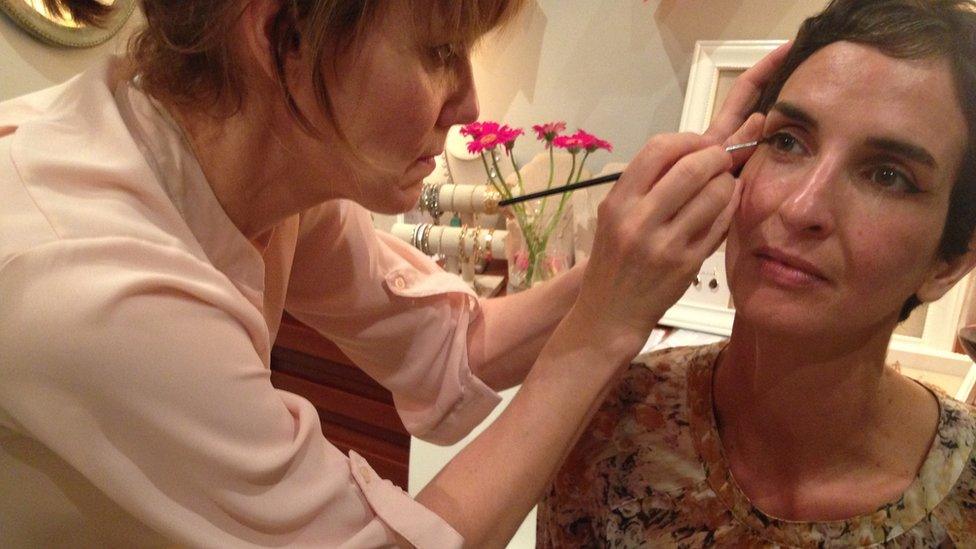
Some women feel make up is an "empowering thing"

Kerrie: "You have to look like you're in control."
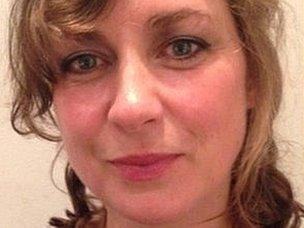
She said: "I wouldn't go to a meeting without makeup. If you want to project control, you have to look like you are some way in control.
"You feel more attractive so you feel more confident."

"It's an addiction," said Maria.
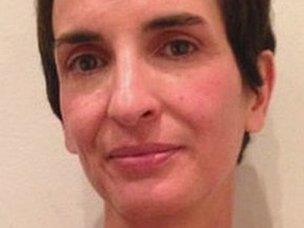
She added: "I was never really allowed to wear makeup.
"I'm having this thing with my daughter, who is 13 now, trying to explain it doesn't really change who you are. I see some people and it looks like a beautiful painting - you become addicted to that."

Lou: "The best version of yourself."
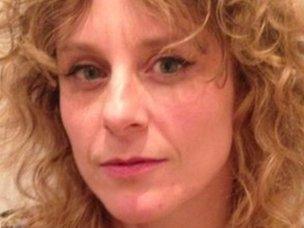
She said: "I think it's an empowering thing. I use my glasses as a way of projecting a different image and you can use makeup in the same way.
"It is all part of an arsenal of things you can use to empower you. It is just wanting to look like the best version of yourself."

These arguments go back centuries. In 1792, Mary Wollstonecraft argued in A Vindication of the Rights of Woman, beauty is presented as a "woman's sceptre" but is, in reality, only gilding the cage of womanhood.
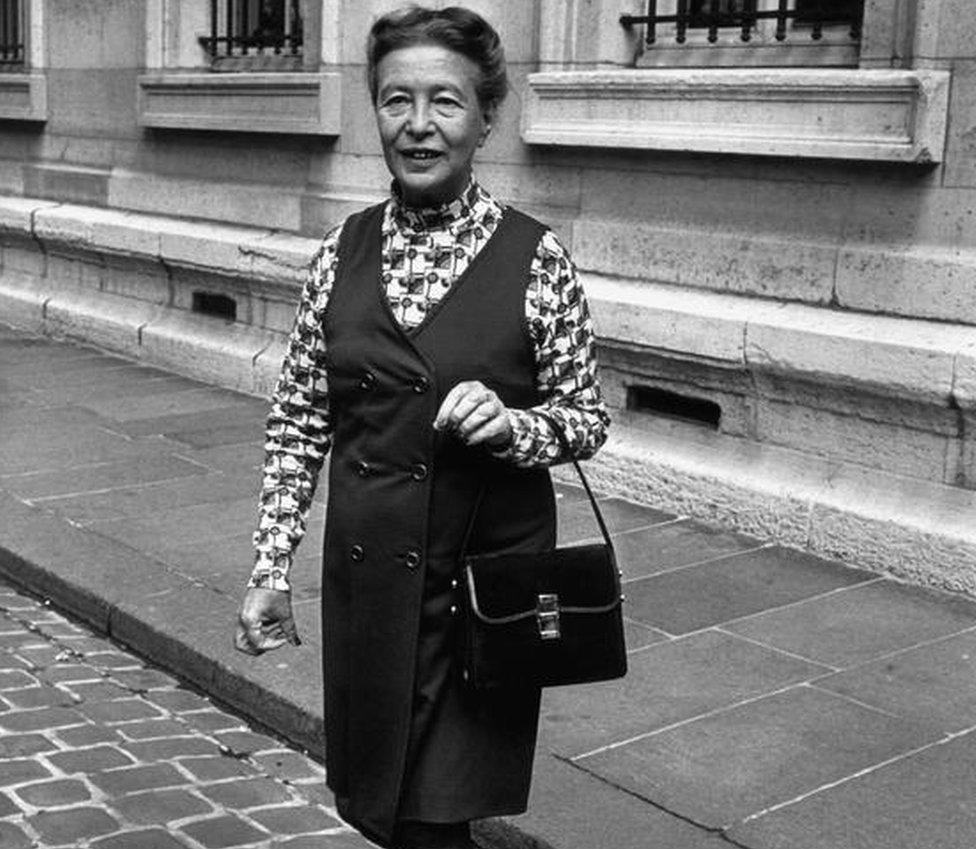
Simone de Beauvoir wrote how women liked to "adorn themselves" in 1949
Simone de Beauvoir wrote in The Second Sex in 1949 "when [a woman] has once accepted her vocation as sexual object, she enjoys adorning herself".
Such contentions put the use of make-up down to patriarchal pressure alone, but archaeological evidence from Ancient Egypt - 6,000 years ago - shows both genders wore kohl eyeliner.
In Ancient China and Japan, around 3000 BC, men and women stained their nails and up until the French Revolution in 1789 men in Europe routinely wore wigs, powdered their faces, and drew on beauty spots.
Female power
Make-up has at times been associated with female power, rather than subjugation.
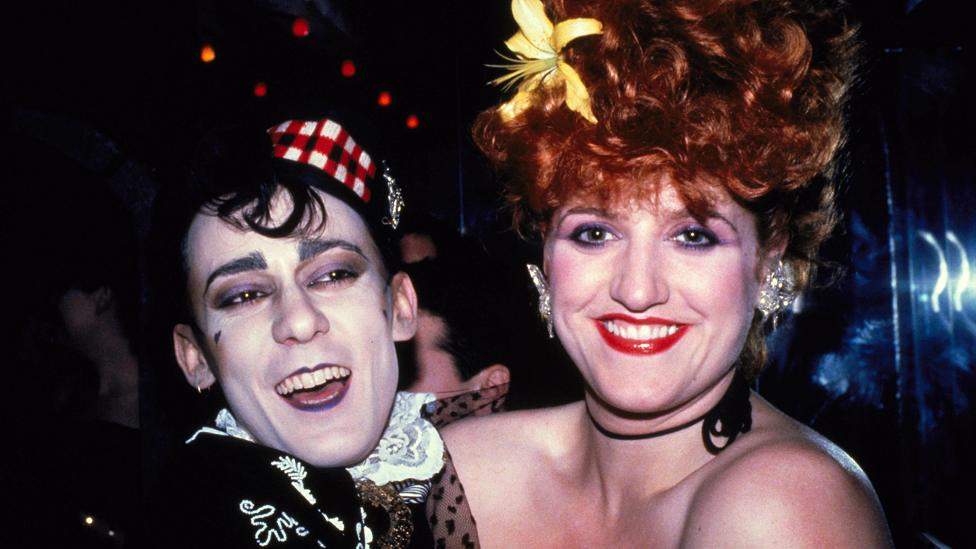
Third wave feminists in the 1980s rejected the notion make-up was due to male objectification
In the 1920s, the flappers rebelled against the idea of demure femininity. After asserting themselves during the war, they promoted their newfound independence and sexual yearning by brazenly applying rouge and lipstick in public.
It was a rallying cry for equality, not a submissive acceptance of subjugation.
And although second wave feminism dismissed makeup as objectification by the male gaze, the so-called lipstick-feminism of third wave feminism in the 1980s and 1990s rejected this.
The movement held that psychological and social empowerment could be gained through cosmetics - allowing women to unashamedly embrace their sexuality.
The beauty industry can be criticised for perpetuating an impossible ideal of perfection but this is merely a symptom of society's wider biases, not an inherent problem with make-up itself.
Harriet Hall edits the Ask a Feminist column for Stylist.co.uk, external
- Published24 November 2015
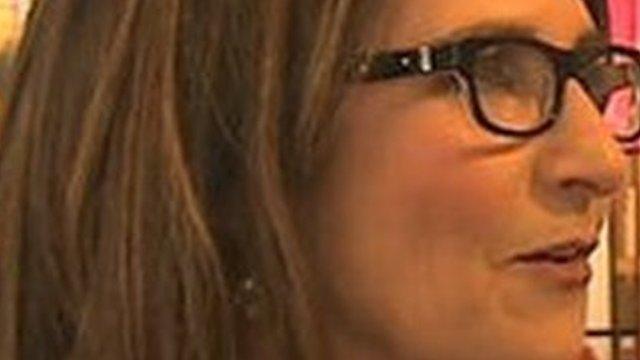
- Published22 November 2015
